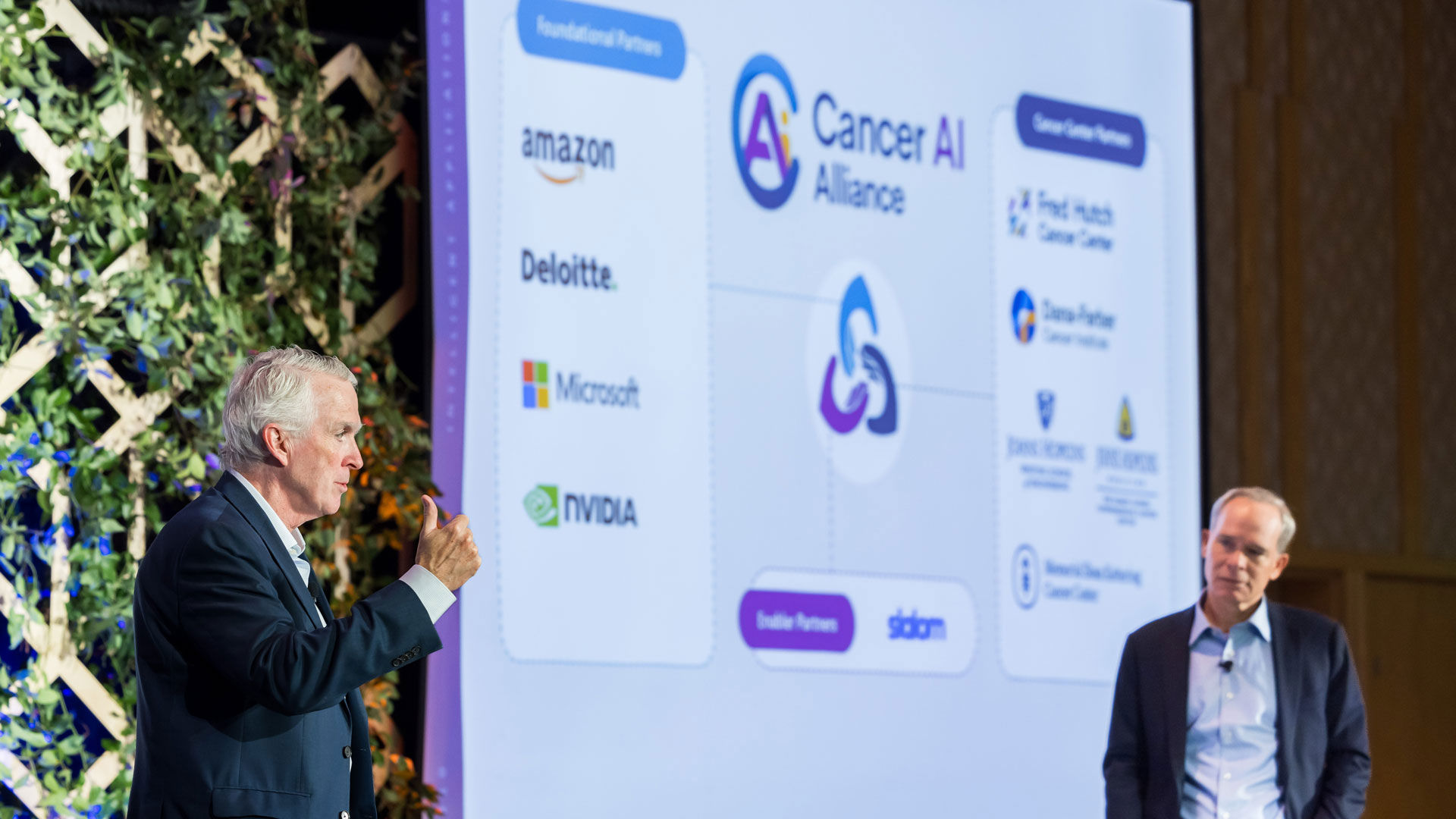

The launch of the Cancer AI Alliance (CAIA) has been welcomed as a virtuous initiative, but it represents a true paradigm shift in advanced cancer research. With funding and technology from major tech companies, the alliance will build a federated AI learning framework to ensure data security and privacy while aggregating insights across cancer centers—many are already calling it a new era. This is undoubtedly a collaboration of great impact: an alliance between top cancer centers and tech giants. By harnessing the power of AI, they are ready to redefine the fight against cancer, unlock the potential of oncology research, and accelerate discoveries.
While each cancer center can build AI models from its own patients’ experiences, truly unique insights and patterns emerge only when millions of these patient data points are brought together. For years, siloing of institutional data and resources has made it difficult for researchers to identify trends, develop new treatments, and find cures.
The Cancer AI Alliance is breaking down these barriers by bringing together leading cancer centers such as the Dana-Farber Cancer Institute, Fred Hutch Cancer Center, Memorial Sloan Kettering Cancer Center, and The Sidney Kimmel Comprehensive Cancer Center and Whiting School of Engineering at Johns Hopkins. These institutions will now combine their forces with AI technology pioneers such as NVIDIA, Microsoft, Google, Amazon Web Services (AWS), Allen Institute for Artificial Intelligence (AI2), Deloitte and Slalom to create the world's first cancer research platform powered by artificial intelligence. This goal is shared enthusiastically by those supporting the Alliance.
As Matt Garman, CEO of Amazon Web Services, said: “AWS is proud to support the Cancer AI Alliance and help deliver on its critical mission of transforming cancer research and care. Together, we will accelerate innovation in cancer discovery and treatments, deploy generative AI at scale, and leverage the power, agility, and security of cloud computing to revolutionise health and patient outcomes”.
“Our collaboration with the Cancer AI Alliance underscores Deloitte's long-standing commitment to help transform the life sciences and healthcare industry,” said Jason Girzadas, CEO of Deloitte US. “We are proud to be investing our talent, resources, and innovative AI, cyber security and health equity technologies to help enhance cancer research, improve treatments and address one of the most pressing health challenges of our time.”
According to Juan Lavista Ferres, Corporate Vice President & Chief Data Scientist, Microsoft “We are at a turning point to find cancer cures thanks to rapid advances in AI. With leading AI capabilities, diverse data types and standards, and modern cloud infrastructure in place, thoughtful collaboration across leading cancer research centres can help accelerate progress. The Cancer AI Alliance will be integral in this lifesaving work, and we are proud to be supporters”. Jensen Huang, founder and CEO of NVIDIA, echoed this, stating that: “The convergence of AI, multimodal healthcare data and federated learning will usher in a new era for cancer research”.
Operationally, the alliance will use an AI framework known as federated learning—an innovative approach that allows a computational model to learn from patient clinical data at each cancer centre without that data ever leaving its original institution. This ensures the security and privacy of patient information, while enabling researchers to draw insights from a vast and diverse dataset. The enormous scale of the project will be possible thanks to the computing infrastructure the Cancer AI Alliance will enable to process large volumes of oncology data, including electronic medical records, pathology images, medical imaging, and genome sequencing.
Funding is, of course, fundamental. The initiative began with seed capital of 65 million US dollars and already benefits from commitments of 20 million from AI2 and Google Cloud and 10 million from AWS. Its ambitious target is to grow to 1 billion dollars. The Fred Hutch cancer center which spearheaded the creation of CAIA and was responsible for securing the initial funding, will act as the alliance's coordinating hub. As an open alliance, funds will be continually reinvested to expand its scope, increase the available data resources, and exponentially amplify its impact. In practice, the alliance will act as a collaborative centre, providing shared infrastructure and helping to establish industry standards, allowing researchers to face challenges together rather than in isolation. This will improve clinical outcomes and reveal trends in data relating to rare cancers and small populations, leading to discoveries that are more meaningful and of broader impact.
Thomas J. Lynch Jr., MD, president and director of Fred Hutch and holder of the Raisbeck Endowed Chair, summed up the transition from “before” to “after”: “Collectively, the data held by the nation's leading cancer centres has been an untapped source of new cancer discoveries that has been out of reach. This alliance helps solve the key technical challenges that will enable us to securely use both AI and massive computational power to find these breakthrough insights and save more lives”.
This initiative is based on a simple principle: technology is the tool, and people are the goal. For this reason, CAIA, led by a prestigious team of experts from both the public and non-profit sectors, relies on visionary leaders who recognise the opportunity to transform cancer research through AI and are determined to overcome the challenges ahead. Using CAIA’s federated learning approach, researchers will be able to more accurately predict a patient’s disease progression, identify the most effective treatments, and anticipate how a tumor might mutate to escape therapy. An especially significant aspect is that this model will make treatments increasingly personalised and effective.
